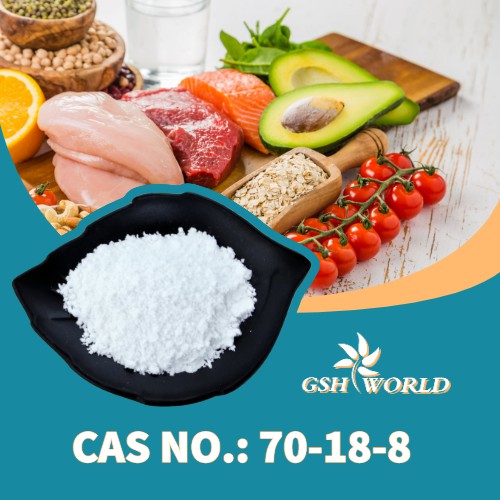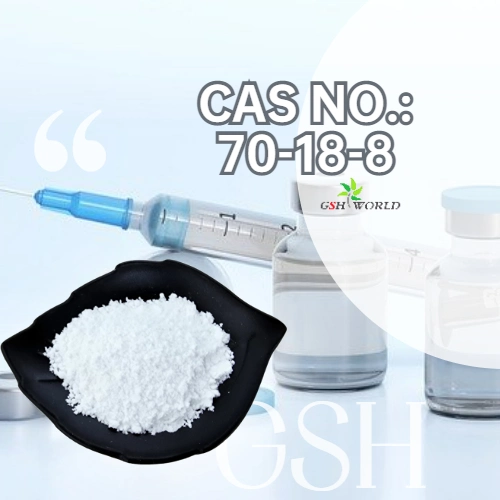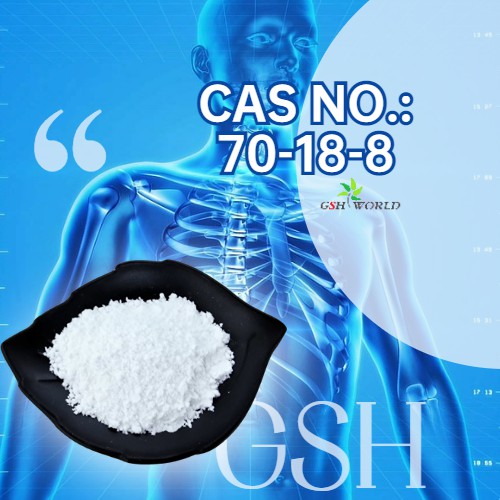Today brings a blockbuster article, a detailed introduction to glutathione.
Say it is heavy, in addition to because the content of the article is still relatively comprehensive, but also because today’s protagonist is – glutathione.
Glutathione is almost a C-place debut in the body’s antioxidant network.
Because it is the body itself can synthesize (you see, after a long evolution, humans have removed their own ability to synthesize vitamin C), but also can reduce other antioxidants.
So it is said that GSH is the master of all antioxidants.
Haha, it seems that I am in the thick color as the foundation, so come on, let today’s star as soon as possible.
The main text is ↓↓↓
Often referred to as the “mother of all antioxidants,” GSH is one of the most talked about supplements in the healthcare industry.
It has a range of benefits, including enhanced heart, liver and brain health.
Read on to learn about the science behind glutathione and how to increase it naturally for optimal health.
What is glutathione?
Why is it called the mother of all antioxidants?
Glutathione (GSH) is the body’s strongest antioxidant. It has great ability to resist oxidative stress and neutralize harmful free radicals. Chemically, GSH is a tripeptide composed of three amino acids:
1✅ glutamic acid
2✅ cysteine
3✅ glycine
The body uses glutamate to make glutamine.
When these three amino acids combine to form GSH, they have the ability to mop up dangerous free radicals, toxic drugs and heavy metals.
This mechanism protects the whole body from dysfunction and disease.
At first glance, GSH looks like other well-known antioxidants, such as vitamins C and E.
It’s important to note that unlike most antioxidants (such as resveratrol and quercetin), with just the right building blocks, your body can make its own glutathione.
In fact, your body needs to make GSH in order for you to live a healthy life.
Scientists even believe that its level can largely predict a person’s lifespan.
GSH deficiency increases sensitivity to oxidative stress, which may be the underlying cause of many diseases, including cancer, heart disease, Parkinson’s and Alzheimer’s.
Glutathione is the body’s main antioxidant.
It can help you detoxify various chemicals and maintain optimal health.
supporter
1✅ Great antioxidant
2✅ promotes detoxification
3✅ nourishing liver
4✅ may help with diabetes
5✅ Supports the brain, intestines, kidneys and lungs
skeptic
1✅ Unpleasant taste
2✅ Poor absorption and bioavailability
3✅ may interfere with digestion
4✅ There is insufficient evidence to prove the medical use of supplements
5✅ Incomplete safety and possible unknown side effects
Functions and benefits of glutathione
Glutathione is a widely beneficial compound made by the body alone.
It can be used as a supplement, but the poor bioavailability of supplemental glutathione means that the absorption rate of GSH absorbed from the gut into the blood is not as high.
This section focuses on the benefits of healthy GSH levels in the body, rather than its role as a supplement.
1) Combat oxidative stress
Glutathione reduces reactive oxygen species (ROS) and oxidative stress in the body, which can damage cells and DNA.
Its benefits will be covered in all the details described below.
In essence, oxidative stress has been linked to cancer, inflammation, brain damage, and a host of other health problems.
Glutathione is also important for the regeneration of other antioxidants the body needs such as vitamin C and vitamin E.
It can boost your overall antioxidant defenses, a task that cannot be accomplished with just one substance.
Glutathione has excellent antioxidant capacity. It removes free radicals from the body and supplements other antioxidants, thereby preventing chronic diseases.
2) Lower inflammation
Glutathione (GSH) blocks the production of most inflammatory cytokines. If you suffer from chronic health problems, cytokines may keep you in a constant state of low-grade inflammation.
GSH deficiency causes inflammation in mice. Blocking inflammatory pathways (MAPK and iNOS) restored their levels. This suggests that GSH and inflammation are in a very tight interrelationship.
Glutathione, on the other hand, blocks NF-κB, which is the main controller of inflammation in the body. This protein complex increases the activity of various inflammatory genes and their products.
Many airway and lung diseases are caused by excessive inflammation, and they can benefit from restoring healthy glutathione levels.
Raising GSH levels will lower inflammation, but you must also address the root cause of the inflammation to fully recover.
3) Glutathione Anti-aging
If glutathione is reduced, free radicals may harm the body and accelerate the aging process leading to cognitive decline. Multiple studies have found that the body produces less of this antioxidant as we age.
In women, levels decline at the beginning of menopause and remain lower after menopause.
In the older people, lower levels increase oxidative stress, which can make bones weaker and lead to osteoporosis.
Cells that are depleted of glutathione are vulnerable to damage.
Low levels trigger a cascade that ultimately leads to cell damage and death, which accelerates aging.
Supplementing glutathione levels can slow the aging process, strengthen bones, and prevent age-related cognitive decline.
4) Glutathione Mental health
Anxiety, depression and stress
Studies have found that people with depression have low levels of glutathione.
Therefore, GSH prevents animals from becoming depressed under stress. What’s more, anti-anxiety drugs may work, in part, by boosting its levels.
Some people with anxiety, depression, and chronic stress have low levels of GSH; Restoring optimal levels may help calm the mind.
Obsessive-compulsive disorder and schizophrenia
People with schizophrenia have low levels of GSH.
NAC increases glutathione levels in the brain, improving symptoms of schizophrenia in clinical studies.
People with OCD may have lower levels of GSH in some parts of the brain and higher levels of free radicals in the blood.
Boosting glutathione can improve antioxidant defense, stress resistance, and control the severity of overall symptoms.
Since multiple medications used to treat bipolar disorder can work by increasing glutathione levels, naturally increasing GSH may also help stabilize mood and symptoms.
People with obsessive-compulsive disorder and schizophrenia often have low levels of glutathione.
5) Autism and ADHD
Children diagnosed with autism have glutathione levels about 20-40% lower than children without autism.
They are abnormal in making and restoring the active form of GSH.
Oral and percutaneous GSH is being developed to restore levels in children with autism.
People with ADHD have low levels of GSH and high levels of oxidative stress.
In children with ADHD, Pycnogenol is another natural GSH booster, capable of restoring GSH standards, and overall antioxidant levels.
Until other studies are conducted, you should use glutathione supplements with caution in children with autism or ADHD.
The bioavailability of most commercially available products is questionable, and some have not been tested in children.
NAC, Pycnogenol, cysteine-rich and sulfur-containing foods, may be a safer option for raising GSH levels in children.
Before adding any new supplements to your own regimen, remember to talk to your doctor, let alone your child.
In children with autism and attention-deficit hyperactivity disorder, GSH is depleted.
They will benefit from sulfur-containing foods rather than from glutathione supplements.
6) Protect your brain
When the brain burns fuel, it constantly produces reactive oxygen species. The brain needs to detoxify to stay healthy, and glutathione plays a key role in this process.
Alzheimer’s disease
Alzheimer’s disease is caused in part by oxidative stress. Antioxidants can prevent or delay disease.
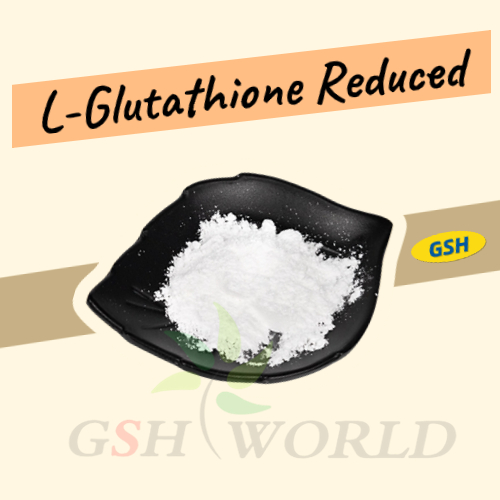
Multiple clinical studies have shown that oral vitamin E, a powerful antioxidant, can slow the progression of Alzheimer’s disease.
In Alzheimer’s disease, the accumulation of toxic proteins further reduces glutathione levels, making patients more prone to deficiencies.
In mice with Alzheimer’s disease, increasing GSH boosted memory, reduced plaque buildup, and improved overall symptoms.
Oxidative damage leads to Alzheimer’s disease;
Some researchers have proposed studying antioxidants such as GSH to help, but human studies have not yet been conducted.
Parkinson’s disease
Glutathione may help fight oxidative stress in Parkinson’s disease that damages dopamine neurons.
People with Parkinson’s disease have low levels of GSH in the brain, and raising GSH may be an early measure to prevent the disease.
In one study, a drug (3, 4-dihydroxyphenylacetone) prevented Parkinson’s disease by increasing glutathione levels.
Supplements for brain health
If you have a brain disease or poor cognitive function, it is crucial to provide the brain with enough building blocks needed to make GSH and other antioxidants.
If you decide to use a supplement, you need to choose a product with excellent bioavailability and enhanced GSH that can cross the blood-brain barrier.
Before adding any supplements (including glutathione) to your routine, remember to talk to your doctor.
7) Glutathione Fight infection
Due to inflammation, viral infection fills the body with oxidative stress and consumes more glutathione.
In many chronic diseases, poor immunity and increased infection rates are associated with low tathione levels.
Once GSH is depleted, immune cells lose their ability to fight infection.
NAC boosts GSH in the body and restores the ability of immune cells to kill the bacteria that cause TB.
In another study, maintaining cysteine levels helped control GSH.
In turn, the immune cells regained their power to destroy the microbes.
Older people with AIDS produce less GSH, which weakens their already weak immune systems and reduces insulin sensitivity.
Increasing glutathione levels may help improve symptoms and reduce the incidence of bacterial infections.
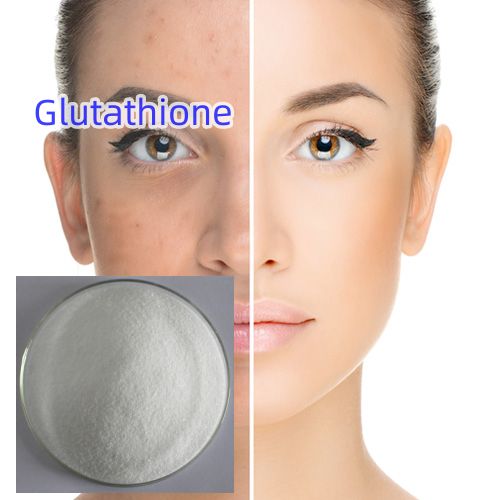
Microbial infections deplete glutathione.
Early research suggests that increasing GSH levels may boost your immune response to bacteria and viruses, but more research is needed to confirm this.
8) Glutathione Intestinal health
In people with IBS, the activity of glutathione synthase is reduced. They also tend to have low levels of their main ingredient, cysteine.
The most important enzyme involved in inhibiting free radicals is called GSH peroxidase. The enzyme uses glutathione and requires selenium to function, thereby removing harmful substances.
High levels of this enzyme indicate a higher level of oxidative stress that needs to be neutralized.
This enzyme also helps to renew and strengthen the intestinal wall. In animals, GSH is able to protect the intestinal wall, which may help prevent intestinal leakage.
Optimal levels of GSH, cysteine and selenium strengthen the intestinal wall.
9) Glutathione Heart health
Glutathione peroxidase and low levels of GSH associated with high oxidative stress and an increased likelihood of heart attack.
Cardiovascular disease mainly caused by oxidative stress in the heart tissue. Glutathione reduces free radicals, which in turn can prevent strokes or heart attacks.
10) Diabetes
Type 2 diabetes and high blood sugar can lower glutathione in the body.
As a result, the accumulation of harmful free radicals can cause many complications, such as heart problems, brain and nerve damage.
Boosting GSH can prevent or limit these problems.
11) Kidney health
Oxidative stress in the kidneys can lead to mild kidney problems or even full-blown kidney failure, depending on its severity.
In a study of 20 people on hemodialysis with chronic kidney disease, GSH improved kidney function and reversed anemia.
In rats, the glutathione booster, NAC, protected against kidney disease caused by the artificial sweetener aspartame.
12) Protect the liver
Glutathione keeps the liver healthy by neutralizing oxidative stress, which can lead to liver disease.
It plays an important role in detoxifying the liver and protecting its sulfur-rich antioxidant pathways.
When faced with harmful substances, the liver makes more GSH to prevent damage.
13) Addiction
Abuse of various drugs, as well as alcohol, increases the production of reactive oxygen species. These, in turn, can alter the brain and behavior, or cause damage.
Some studies have shown that increasing GSH can help overcome addictive behaviors caused by eating disorders and alcohol/drug abuse.
Boosting antioxidant defenses not only protects the brain, but also helps rid the body of harmful substances.
Chronic alcohol abuse reduces glutathione in the liver. During withdrawal, increasing GSH levels improves liver function.
Heavy drinking also increases oxidative stress in the lungs, which often leads to infections, such as pneumonia.
Glutathione may protect the lungs by reducing oxidative stress.
GSH can reduce oxidative damage caused by drug and alcohol abuse.
14) Lungs and respiratory tract
Low levels of glutathione can increase respiratory inflammation and cause asthma. In mice with asthma, the use of NAC was able to increase GSH, which in turn reduced inflammation and improved symptoms.
Chronic obstructive pulmonary disease (COPD) a lung disease caused by long-term oxidative damage.
Increasing glutathione reduces free radical damage in the lungs, thereby reducing the likelihood of developing COPD.
15) Glutathione Sleep apnea
People with sleep apnea have high levels of oxidative stress, so their GSH levels reduced.
In one study, increasing glutathione levels to the normal range improved their sleep quality.
16) Healthy skin
pimple
Oxidative stress reduces glutathione in acne patients.
Boosting your GSH levels can help get rid of acne by neutralizing oxidative stress and promoting skin regeneration.
Spot and aging
Glutathione can dilute melanin in the skin of healthy women.
It reduces the activity of skin cells that produce deep pigment (melanin).
GSH even helps to improve the dark patches of skin that come with age.
17) Eye health
Glaucoma and cataracts can gradually lead to blindness.
Since oxidative stress underlies both, boosting glutathione can protect the eyes. Clinical studies needed to explore this benefit.
18) A healthy pregnancy
Low levels of tathione may make pregnant women prone to depression and impair fetal brain development.
It has found that increased oxidative stress in the fetus associated with the occurrence of preterm birth.
Boosting glutathione and antioxidants with foods rich in sulfur and cysteine may help maintain a healthy pregnancy.
Supplements not recommended unless prescribed by your doctor.
19) Cystic fibrosis
People with cystic fibrosis have low levels of GSH and high oxidative stress.
Low levels of GSH in the lungs can impair breathing and trigger airway damage. Inhaled glutathione may improve the symptoms of cystic fibrosis.
Ways to increase glutathione
GSH supplement
Glutathione made in the body from 3 amino acids: glutamic acid, cysteine and glycine.

Once produced and used, it broken down by an enzyme called gamma-glutamyltransferase GGT.
If you take a glutathione supplement, it must pass through the liver before entering the bloodstream.
The liver may contain large amounts of GGT, which can destroy GSH. As a result, most oral forms of GSH will fall short of their intended effects.
There are several ways and forms of supplements that can bypass this restriction:
1✅ liposome
2✅ sublingual (absorbed directly into the bloodstream)
3✅ A sustained release tablet dissolved in the mouth or lozenges
4✅ inhaled formulations
5✅ methyl glutathione (GGT cannot broken down)
6✅ Coated tablet
7✅ Intravenous (safety not determined!)
New formulations are being developed every day. These products include patches, creams, nanoparticles and other advanced products that maximize their concentration in the body.
The liver quickly breaks down GSH, so oral supplements are usually ineffective.
Advanced supplements such as sublingual or liposomes can bypass the liver, but there is not enough evidence to know if they are effective.
cysteine
Of the three amino acids that make GSH, cysteine is the most important.
The amount of cysteine determines the rate and amount of glutathione produced.
Effective forms of cysteine supplementation can be: L-cysteine and n-acetylcysteine (NAC).
selenium
Selenium is important for maintaining healthy glutathione levels because selenium supports the enzyme that uses GSH to neutralize free radicals: GSH peroxidase.
Lipoic acid (ALA)
R-lipoic acid is one of the main enhancers of glutathione levels.
methionine
S-adenosine methionine (SAM-e) is a supplement that contains methionine and can also help boost glutathione levels.
Many GSH enhancing supplements will contain all 4 of the above. Some products do not contain selenium, you may want to take supplements or make sure you are getting enough selenium from the foods you eat.
Glutathione enhancing nutrients and supplements, including cysteine (NAC), selenium, alpha-lipoic acid and methionine (SAM-e).
food
Glutathione is a component found in many foods. These can be good dietary supplements.
✅ Garlic, asparagus, and cruciferous vegetables boost glutathione through their sulfur content.
✅ Animal foods that are high in cysteine and methionine may also help increase glutathione levels.
Calcium and riboflavin also increase GSH, and dairy products contain both nutrients.
Side effects and safety of glutathione
It not recommended to take GSH supplements during pregnancy or breastfeeding.
If you experience side effects, then glutathione-boosting supplements may overstimulate your immune system. Always carefully track your body’s reactions to determine if they are working.
This often means keeping track of your lab and symptoms, especially if you experience persistent inflammation that is difficult to pinpoint.
In clinical trials, side effects of 4 weeks of oral glutathione (1 gram per day) included:
1✅ flatulence
2✅ loose stools
3✅ flushed face
4✅ Weight gain
In patients with cystic fibrosis, side effects of high doses (up to about 150 mg/kg/day) include chest tightness, diarrhea, and fever.
In rare cases, GSH supplements may cause flatulence, diarrhea, weight gain, and inflammatory episodes. Pregnant women should avoid it.
gist
Boosting glutathione levels is a great way to boost antioxidants and immune defenses.
Glutathione will help your body detoxify and protect your liver, brain, and heart. Taking GSH supplements may not be the best approach.
Only specialized liposomes and sublingual preparations can enter your bloodstream.
Oral supplements don’t work because the liver breaks them down before they can work.
To boost your glutathione levels, get enough of the building blocks: NAC (cysteine), alpha-lipoic acid and SAM-e (methionine).
Eat more sulfur-rich foods like garlic and cruciferous vegetables, and make sure you get enough selenium.
Also reduce stress and avoid toxins that deplete glutathione levels.


